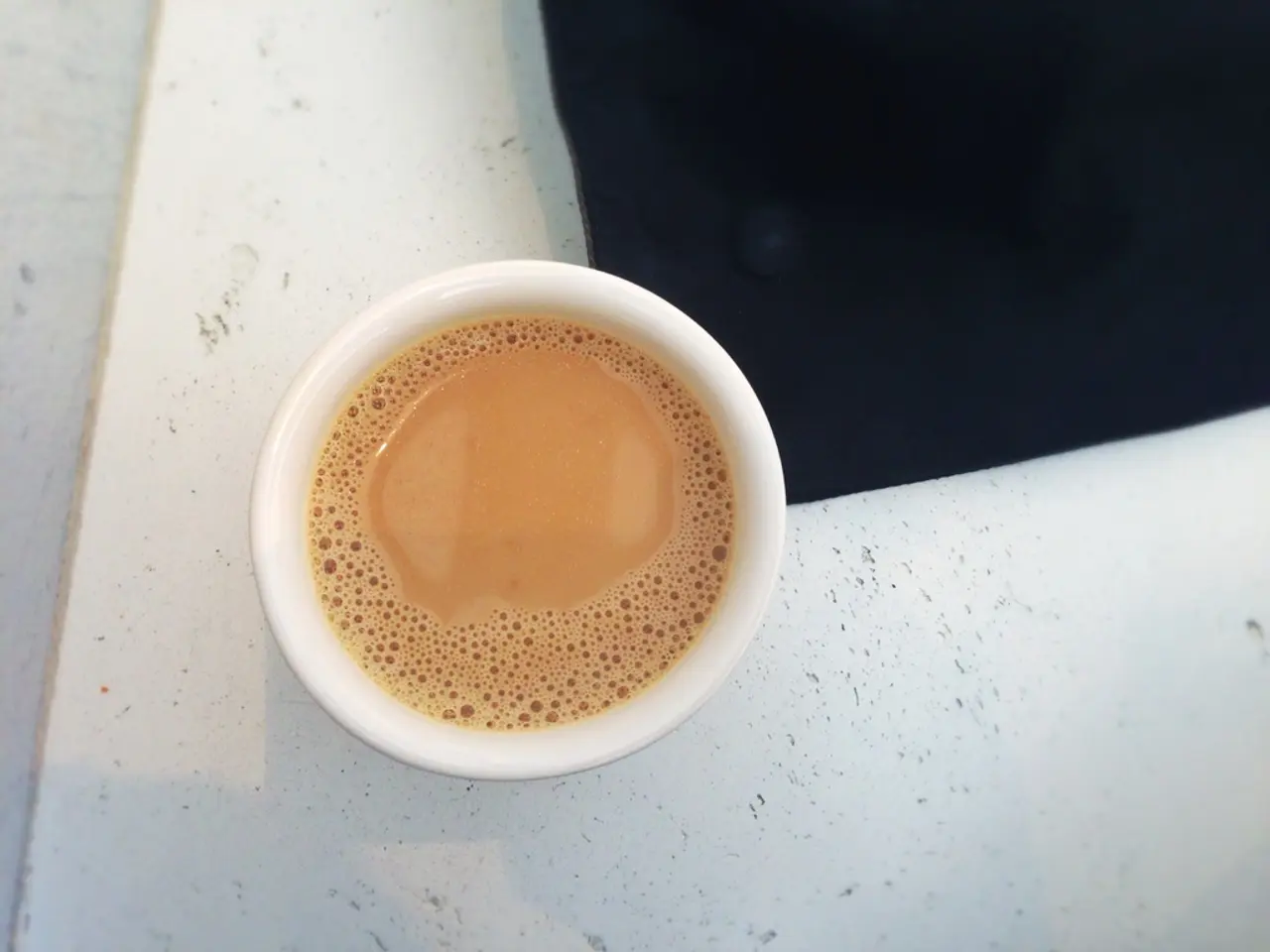Alleviating Migraines: Drinks to Consider
Preventing and Easing Migraines with the Right Drinks
Migraines, a chronic neurological disorder with no known cure, can be debilitating for many individuals. However, certain drinks may help alleviate symptoms and prevent episodes from occurring. Here's a breakdown of several beverages that address common migraine triggers such as dehydration, neurological excitability, and inflammation.
- Water Staying well-hydrated is fundamental because dehydration is a common migraine trigger. Drinking plenty of water helps maintain fluid balance and can reduce headache symptoms.
- Magnesium-rich beverages (e.g., Almond Milk) Magnesium plays a crucial role in stabilizing neurological function by calming hyper-excitable brain activity that can precipitate migraines. Almond milk is a good dietary source of magnesium and may help reduce migraine frequency and intensity.
- Green Tea with Lemongrass Green tea contains anti-inflammatory catechins, such as EGCG, which may help reduce migraine-related inflammation and tension in the head. Lemongrass adds essential oils that further ease swelling and pressure, potentially alleviating certain types of headaches.
- Watermelon Juice or Water-rich Fruit Juices Watermelon is over 90% water and contains magnesium and potassium, which assist in hydration and electrolyte balance. Proper hydration and electrolyte replenishment are important in preventing dehydration-induced migraines.
- Moderate Caffeine Intake (e.g., Coffee or Tea) Moderate caffeine consumption (roughly 50–300 mg) can help reduce migraine frequency by stimulating the central nervous system and constricting dilated blood vessels. However, excessive caffeine or withdrawal can trigger headaches.
- Electrolyte Drinks (containing Potassium and Sodium) Electrolytes support nerve function and hydration. Replenishing electrolytes through beverages can help address dehydration-related triggers.
Turmeric and Ginger Shots
Turmeric and ginger shots, made by juicing fresh turmeric with ginger, may help decrease migraine symptoms. Ginger aids in easing nausea, a common migraine symptom, while turmeric significantly decreases migraine symptoms and the frequency of migraine episodes. Turmeric and ginger tea is available commercially, and adding black pepper to these drinks can increase the absorption of curcumin.
Feverfew Tea
Feverfew tea, made from a small white flower, may help treat migraine headaches and prevent migraine episodes from developing.
It's essential to remember that while these drinks can help manage migraines, they are not a substitute for medical treatment. If you are experiencing migraines, it's crucial to consult with a healthcare professional for proper diagnosis and treatment.
[1] Mayo Clinic. (2021). Migraines. Retrieved from https://www.mayoclinic.org/diseases-conditions/migraine-headache/symptoms-causes/syc-20355079 [2] National Headache Foundation. (2021). Triggers & Prevention. Retrieved from https://www.headaches.org/2019/05/14/triggers-prevention/ [3] American Migraine Foundation. (2021). Magnesium and Migraines. Retrieved from https://americanmigrainefoundation.org/resource-library/magnesium-and-migraines/ [4] American Migraine Foundation. (2021). Dehydration and Migraines. Retrieved from https://americanmigrainefoundation.org/resource-library/dehydration-and-migraines/ [5] American Migraine Foundation. (2021). Caffeine and Migraines. Retrieved from https://americanmigrainefoundation.org/resource-library/caffeine-and-migraines/




